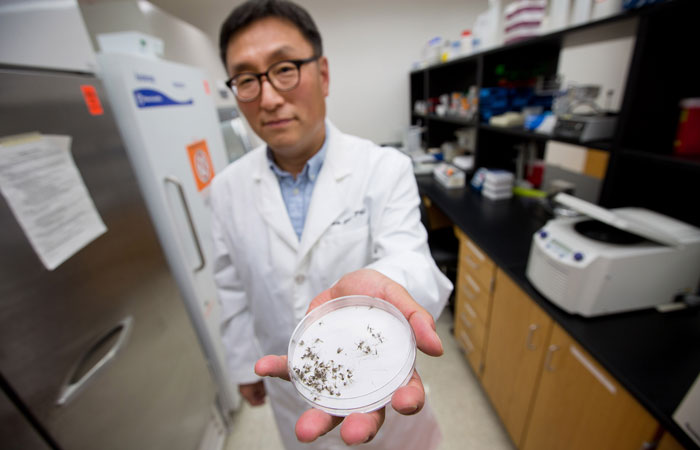Hurricane Harvey increases public health threat from mosquitoes
By Alex Branch

Floodwaters from Hurricane Harvey are expected to remain in southeast Texas for some time. Among the public health concerns is how stagnant water could impact the mosquito population and potential transmission of associated diseases.
UNT Health Science Center’s medical entomologist Joon Lee, PhD, Associate Professor of Biostatistics and Epidemiology in the School of Public Health, answered three questions about the risks.
Q: What impact could Hurricane Harvey have on the mosquito population?
Dr. Lee: In the short term, the news is good. Hurricane Harvey should have washed away immature mosquito populations from their breeding grounds. But mosquitos can rapidly reestablish themselves in stagnant water. That means their population will likely explode with the large increase in available breeding grounds.
Q: How soon could that explosion occur?
Dr. Lee: It is very likely that within two weeks, the mosquito population will return in large numbers and remain for at least a month or two. The weather and availability of effective public health measures during the recovery could impact the size and length of mosquito explosion.
Q: What are the biggest public health concerns caused by a mosquito explosion?
Dr. Lee: Wherever a disaster occurs, the public health system responsible for responding to increases in mosquito activity and associated disease transmissions is usually weakened or lost. Meanwhile, people who suffer from that disaster may have weakened immune systems that increase their susceptibility to disease or hinder their ability to recover.
Increased transmission of potentially-life threatening, mosquito-borne diseases such as West Nile virus and St. Louis encephalitis are the biggest public health risks. Outbreaks of Zika, dengue fever and Chikungunya also are possible, although transmission of those diseases must originate from a person who is already infected.
![Uyen Sa Nguyen Scaled[58]](https://www.unthsc.edu/newsroom/wp-content/uploads/sites/16/Uyen-Sa-Nguyen-scaled58-145x175.jpg)




Social media